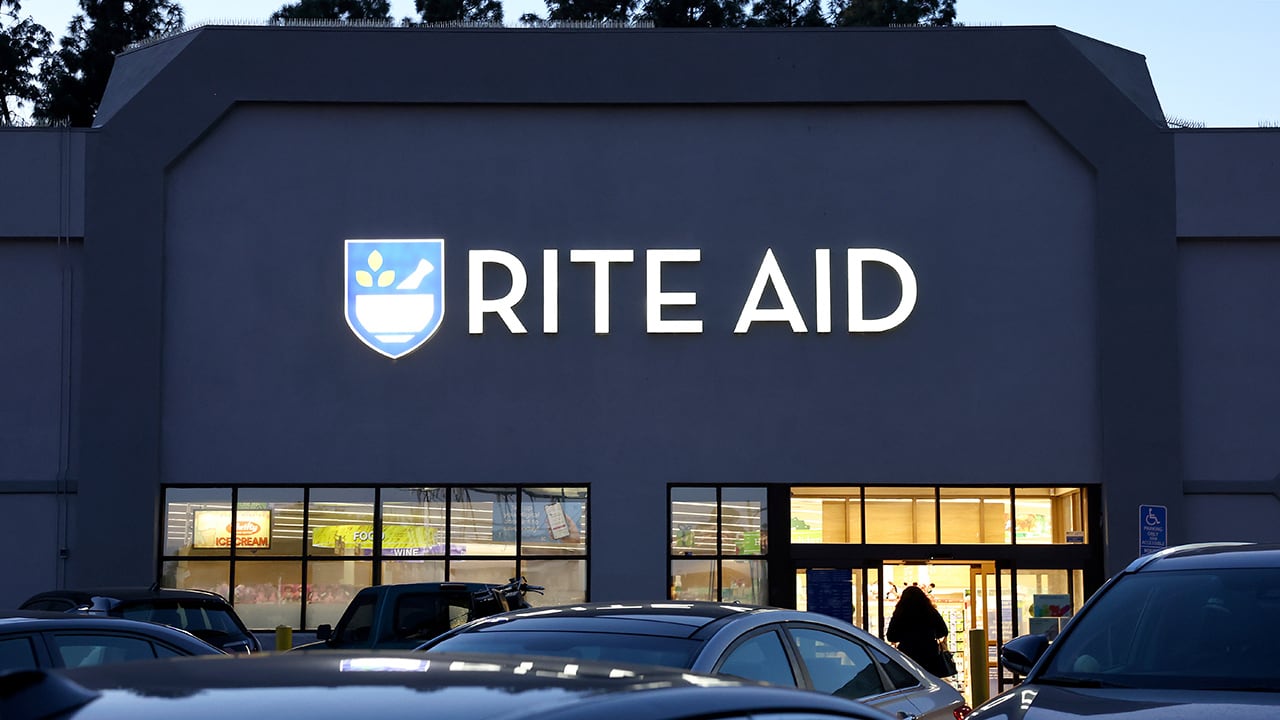Rite Aid plans to shut down or sell all of its remaining locations over the next several months as it proceeds through another round of bankruptcy, the company confirmed.
The Philadelphia-based drugstore chain said it will offload prescription files, store inventory, and other assets while also closing distribution centers.
Though stores will remain open for now, Rite Aid is no longer restocking its inventory, meaning customers can expect shelves to become increasingly empty.
“I think what we’ll progressively see is the stores will become more and more spartan,” said Neil Saunders, managing director at consulting firm GlobalData.
Rite Aid operates 1,245 stores in 15 states, with the highest concentration in California (347 locations), New York, and Pennsylvania.
The chain said most stores will remain open for a few more months, but all will eventually either close or be transferred to a new owner.
During that time, customers can still fill prescriptions, receive vaccinations, and shop in-store or online.
However, changes are coming soon: the company will stop issuing rewards points, and starting next month, it will no longer accept gift cards or process returns and exchanges.
Prescription files, considered valuable assets, will likely be sold to other pharmacy chains, grocery stores, or retailers with pharmacy services.
Rite Aid says it is working to ensure a smooth transfer of prescription records, though there’s no guarantee customers will be matched with a nearby pharmacy—especially in rural areas.
Saunders noted this could be problematic in small towns where Rite Aid is the only pharmacy for miles.
The latest bankruptcy filing comes less than a year after Rite Aid first filed for Chapter 11 protection in 2023.
The company said in a letter to vendors that it continues to face mounting financial pressures and believes another bankruptcy is its only viable option.
Like other national drugstore chains, Rite Aid has struggled with thinning profits on prescriptions, rising retail theft, costly opioid-related legal settlements, and the increasing shift of shoppers to online platforms and discount stores.
Meanwhile, rivals have also downsized.
CVS Health has closed stores, and Walgreens—Rite Aid’s larger competitor with six times as many locations—announced in March that it will be acquired by private equity firm Sycamore Partners.
©2025 Cox Media Group






